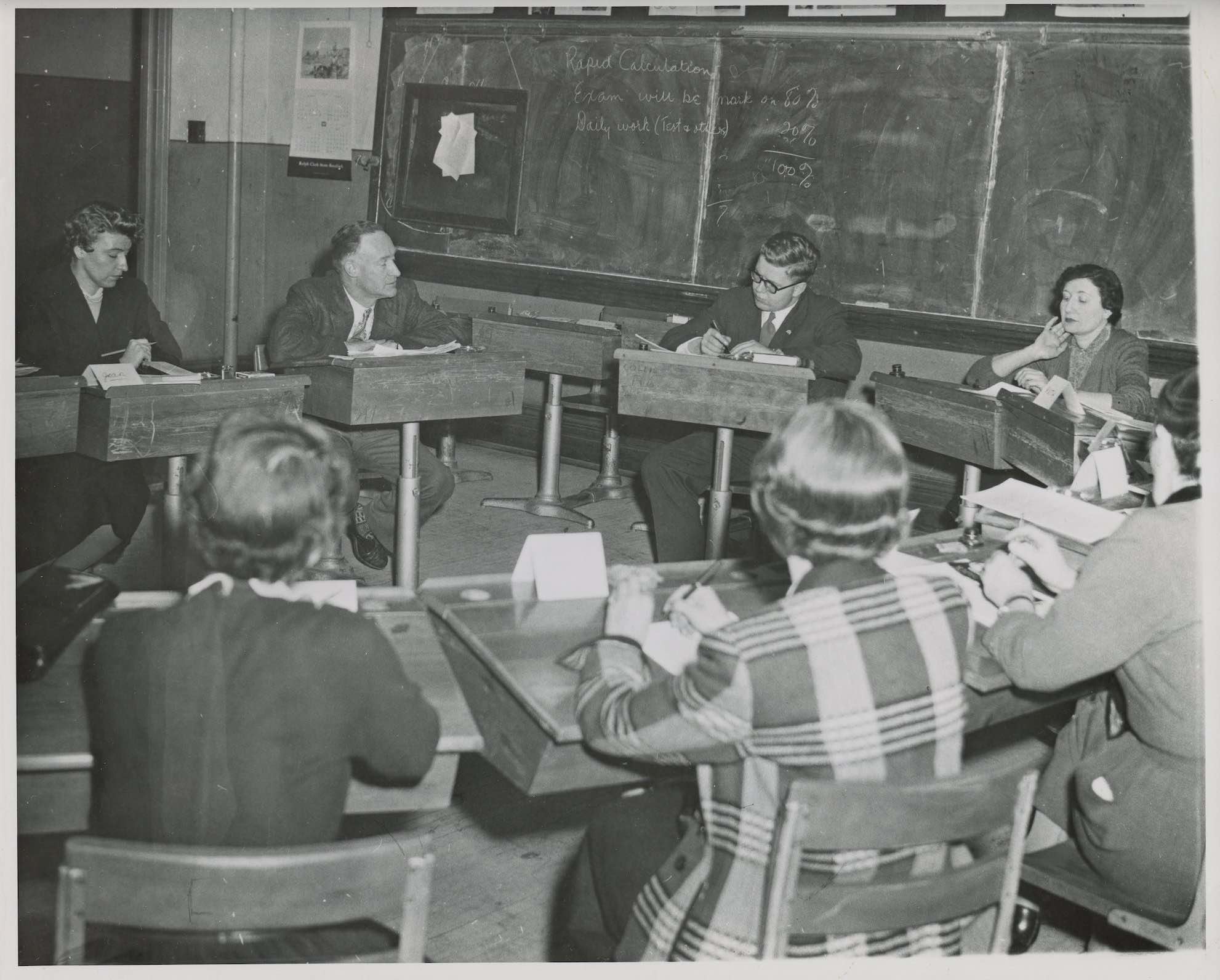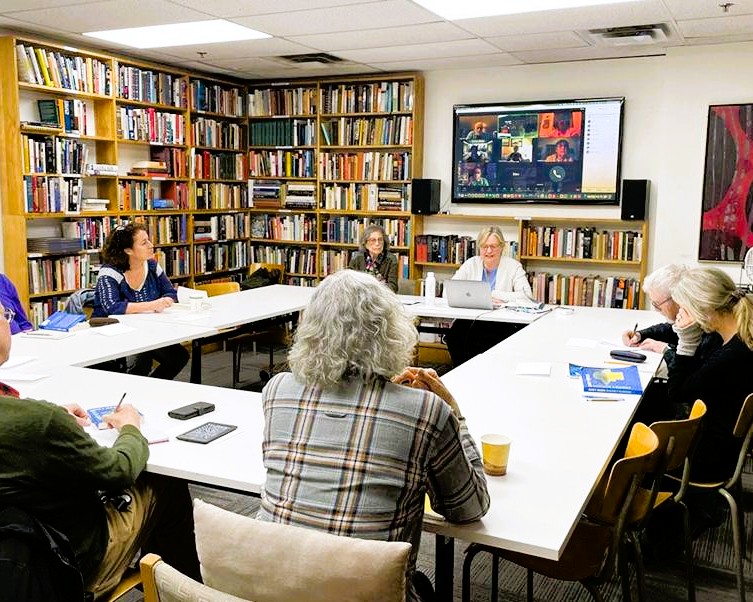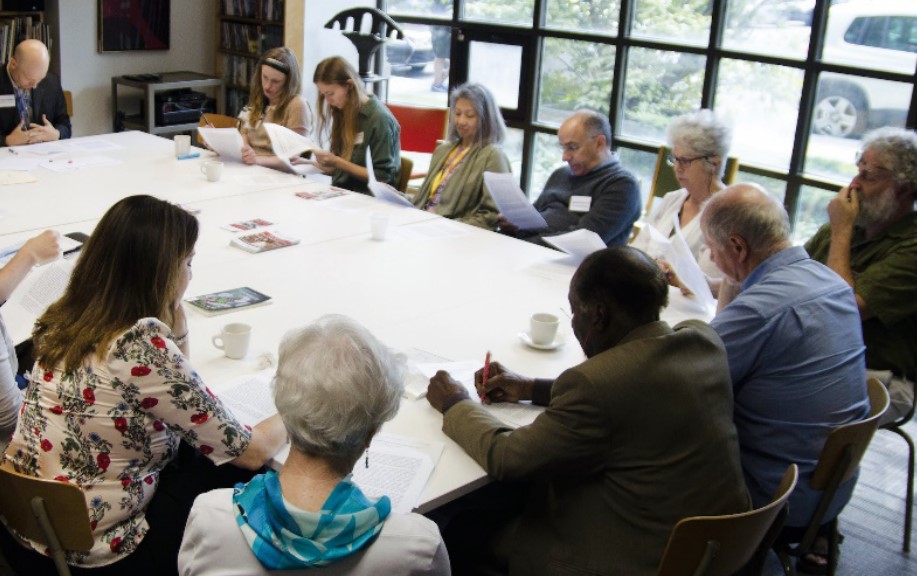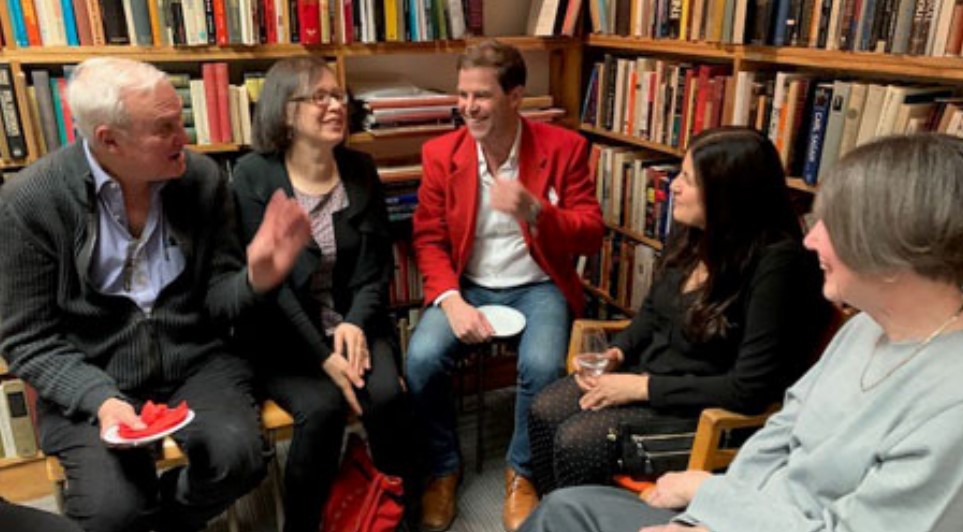For our 80th anniversary, the More News will be publishing articles highlighting elements of our rich history.

TMI Course, 1945/1949
When the Thomas More Institute began as the “Catholic Education Committee” in 1945, it took its inspiration from a series of lectures that had been offered at Loyola College in 1944. By the late 1950s, however, the Institute was known not for its lectures, but for its discussion courses. How did informed dialogue and shared inquiry come to take center stage at Thomas More?
The Thomas More Institute and its young founders continually sought to experiment and search for the best ways to provide adult education. In the late 1940s, Great Books programs were gaining popularity. Founded in 1947 by two University of Chicago Professors, Robert Maynard Hutchins and Mortimer Adler, the Great Books Foundation “sought to promote lifelong education through the reading and discussion of outstanding literature.”(1) In May of 1949, Eric O’Connor, Charlotte Tansey, Martin O’Hara and other members of the Institute took a weeklong training with the Great Books Foundation. In 1951, Thomas More co-sponsored another training with the Foundation, which led to the creation of seven First Year Great Books discussion groups in the greater Montreal area, two under the direction of the Thomas More Institute. What began as a way to discuss the classics of the Western tradition, however, soon transformed into the method of education for most courses at the Institute. These reading-discussion courses, as they were referred to, fit beautifully with another of the inspirations behind the Institute, the thought of Bernard Lonergan.
Speaking on the importance of Bernard Lonergan’s lecture course in 1945, the first year of the institute, Eric O’Connor said:
“What came through from him was that all questions could be asked and should be asked, that in fact one didn’t begin to learn until one began asking questions. This was a shock to anyone educated before 1945… Having those lectures didn’t become as important as a theory. That is definite. It became important as an experience: the way you learned anything was by slow questioning.” (2)
What reading-discussion courses sought to do was to create the experience of questioning in the classroom. Have you ever wondered why every description of a course at Thomas More is filled with questions? Thomas More discussion courses don’t push a particular point of view or seek to repeat the orthodoxies of a tradition. They inquire into the meaning of the texts read by the group and seek to understand them along with the questions of the course. As William Mathews put it in his article on the work of Eric O’Connor and the Thomas More Institute:
“The Thomas More did not mean to question the correctness of the traditions, be they literary, religious, political, or cultural. The point was, had they been understood, what did they mean?… [It is mere] dogma that the world begins with “our generation” and the past, tradition, has nothing to teach us. The fact of the matter is that there is a wisdom in one’s past traditions, which properly assimilated equips a modern generation to understand, diagnose, interpret and respond to the pathologies and the creativities of the human spirit in its own era. Without the proper awakening of our questioning to the meaning and truth of our traditions and their wisdom figures we will be in bondage to them and become bigots. Or we will discard them and become rootless, be at the mercy of the whims of our present with no past wisdom to guide us.” (3)
One becomes an adult learner, a thinker, when one questions deeply and seeks to understand the thought of others, whether the classical great works or those of current writers. This in turn leads to one’s own insights about the world we live in. What is attempted in every reading-discussion course at the Thomas More Institute is to enable understanding to take place through shared inquiry into the questions of the course and the questions of our time.

TMI Course, 2023
–Carol Fiedler
(1) https://www.greatbooks.org/nonprofit-organization/history/
(2) Inquiry and Attunement, Thomas More Institute Papers/81. Montreal 1981, quoted in: William Mathews S.J.,
“Curiousity at the Center of One’s Life: Reflections on Eric O’Connor and the Thomas More Institute,” p 3.
(3) Mathews, 1981, p. 4.

